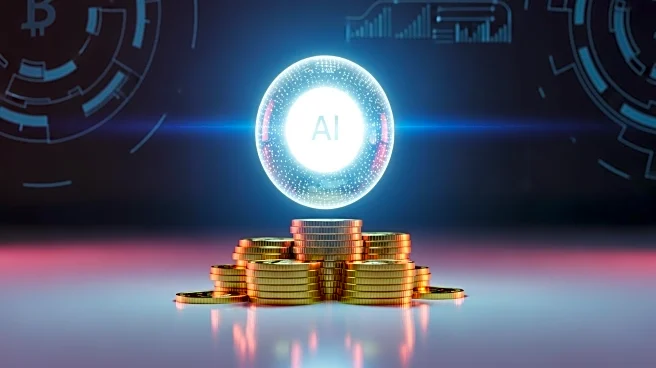What's Happening?
The AI industry is facing scrutiny as experts suggest it may be entering a bubble phase. JPMorgan Chase CEO Jamie Dimon recently commented that many assets appear to be entering bubble territory, while Amazon founder Jeff Bezos described the AI market
as an 'industrial bubble' with stock prices disconnected from business fundamentals. Despite these warnings, major tech companies continue to invest heavily in AI technologies. Stanford economist Jared Bernstein, a former White House chief economic adviser, has also weighed in on the issue, highlighting the potential risks associated with the current AI boom.
Why It's Important?
The potential AI bubble could have significant implications for the U.S. economy and tech industry. If the bubble bursts, it could lead to substantial financial losses for investors and companies heavily invested in AI. This scenario might also impact employment within the tech sector and slow down innovation. On the other hand, if the bubble does not materialize, continued investment in AI could drive technological advancements and economic growth. The situation presents a critical juncture for policymakers and investors who must balance the risks and rewards of AI investments.
What's Next?
As the debate over the AI bubble continues, stakeholders in the tech industry may need to reassess their investment strategies. Companies might consider diversifying their portfolios to mitigate potential risks associated with a bubble burst. Policymakers could also play a role by monitoring the market and implementing regulations to prevent excessive speculation. The ongoing discussion among economists and industry leaders will likely influence future investment decisions and policy developments.
Beyond the Headlines
The ethical implications of AI development are also a concern. As companies push for rapid advancements, issues such as data privacy, algorithmic bias, and the impact of AI on employment must be addressed. The potential bubble highlights the need for responsible AI development that considers long-term societal impacts.

















